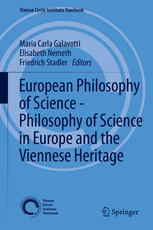

Most ebook files are in PDF format, so you can easily read them using various software such as Foxit Reader or directly on the Google Chrome browser.
Some ebook files are released by publishers in other formats such as .awz, .mobi, .epub, .fb2, etc. You may need to install specific software to read these formats on mobile/PC, such as Calibre.
Please read the tutorial at this link: https://ebookbell.com/faq
We offer FREE conversion to the popular formats you request; however, this may take some time. Therefore, right after payment, please email us, and we will try to provide the service as quickly as possible.
For some exceptional file formats or broken links (if any), please refrain from opening any disputes. Instead, email us first, and we will try to assist within a maximum of 6 hours.
EbookBell Team

0.0
0 reviewsThis volume combines the theoretical and historical perspective focusing on the specific features of a European philosophy of science. On the occasion of the 20th anniversary of the Institute Vienna Circle the Viennese roots and influences will be addressed, in addition. There is no doubt that contemporary philosophy of science originated mainly in Europe beginning in the 19th century and has influenced decisively the subsequent development of globalized philosophy of science, esp. in North America. Recent research in this field documents some specific characteristics of philosophy of science covering the natural, social, and also cultural sciences in the European context up to the destruction and forced migration caused by Fascism and National Socialism. This European perspective with the integration of history and philosophy of science and the current situation in the philosophy of science after the transatlantic interaction and transformation, and the “return” after World War II raises the question of contemporary European characteristics in the philosophy of science. The role and function of the renowned Vienna Circle of Logical Empiricism and its impact and influence on contemporary philosophy of science is on the agenda, too. Accordingly, the general topic is dealt with in two parallel sessions representing systematic-formal as well as genetic-historical perspectives on philosophy of science in a European context up to the present.